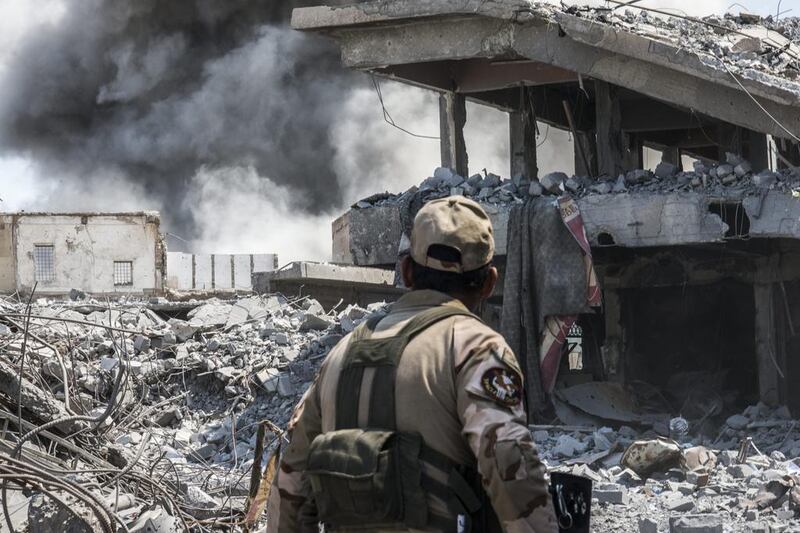Nine months into the retaking of the Iraqi city of Mosul, and ISIL is preparing its last throw of the dice. Hemmed in on every side by the Iraqi army and its allies, the militant group is now confined to a small section of the city, mainly the Old City of Mosul, right on the Tigris river. That may seem like good news. But it requires serious vigilance.
ISIL is now like a trapped beast, and a trapped beast is unpredictable. There are an estimated 150,000 residents just in that small area of the city, trapped in a maze of narrow streets. Some, it is thought, are being held as human shields. Others are staying because of the risk of leaving: ISIL snipers have shot hundreds who have tried to flee the city. Food, water and medicine are all running low.
ISIL certainly won’t go without a fight. And yet the wind is in the sails of the Iraqi army – the city will, eventually, be rid of that scourge. But still vigilance will be required, because there are risks for civilians and the Iraqi state once Mosul is cleansed, and there are risks for the wider region and the world.
For those left behind, there are still risks. ISIL have been known to confiscate the identity cards of young men. Without ID, it is possible the Iraqi forces may treat them as members of ISIL. Some of the Shia militias currently allied to the Iraqi army have been accused of sectarian killings in the past. If that were to happen again, it would inflame the very sectarian tensions that ISIL originally played upon.
So the Iraqi army, while it ensures ISIL fighters haven’t merely slipped into civilian clothes to try to escape Mosul, must also ensure it doesn’t inflame tensions further.
More broadly, the region and the world must prepare for the next stage of ISIL’s attacks. Because defeating ISIL in Mosul – and even in Raqqa – will not be the end of the group. Instead, divorced from their strongholds, the fighters will probably seek to attack targets wherever they can. These may not be as “spectacular” as in the past, but they will be deadly. There may be a period of small scale attacks across Iraq, Syria and even further afield.
Vigilance then is required, even as the final days of ISIL in Mosul approach. The battle to defeat ISIL has been long and bloody – hundreds of thousands have been affected and displaced by group’s actions. Whenever and however ISIL is defeated, it will always feel like too long.





